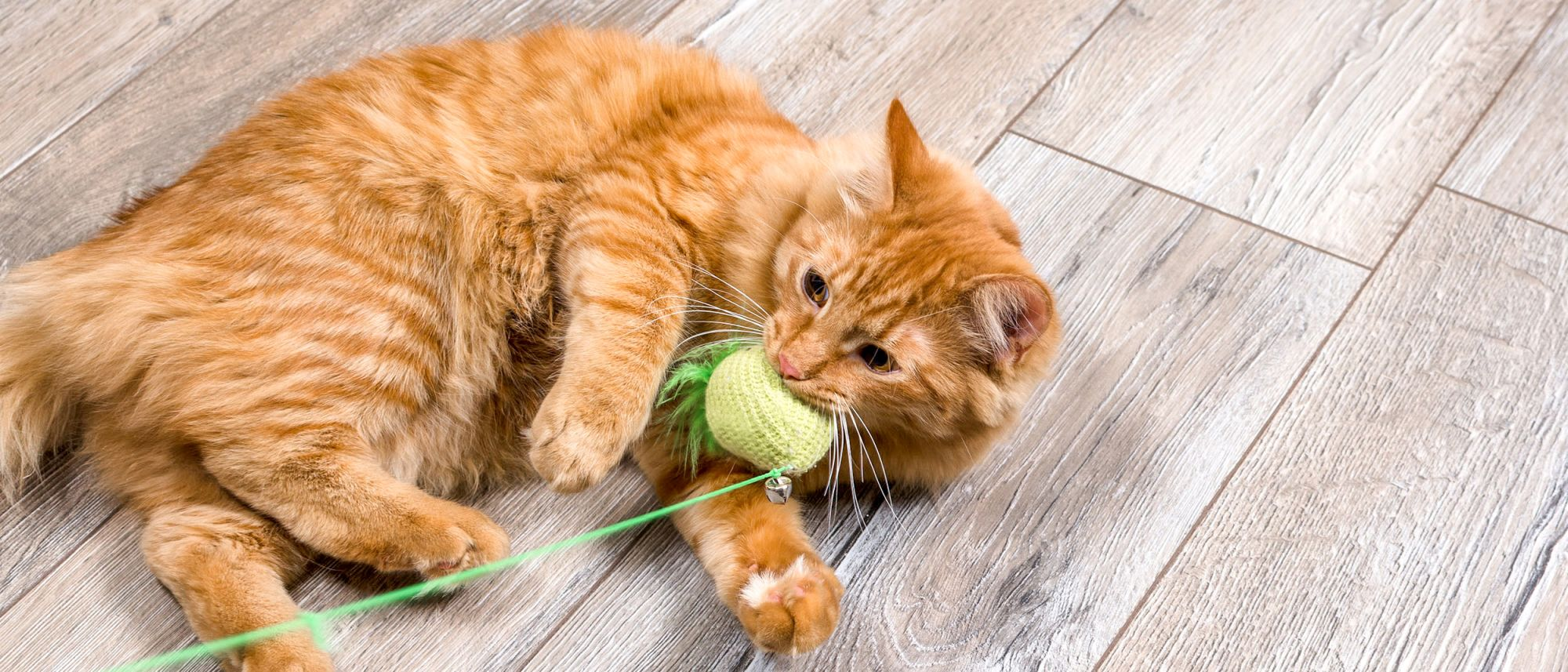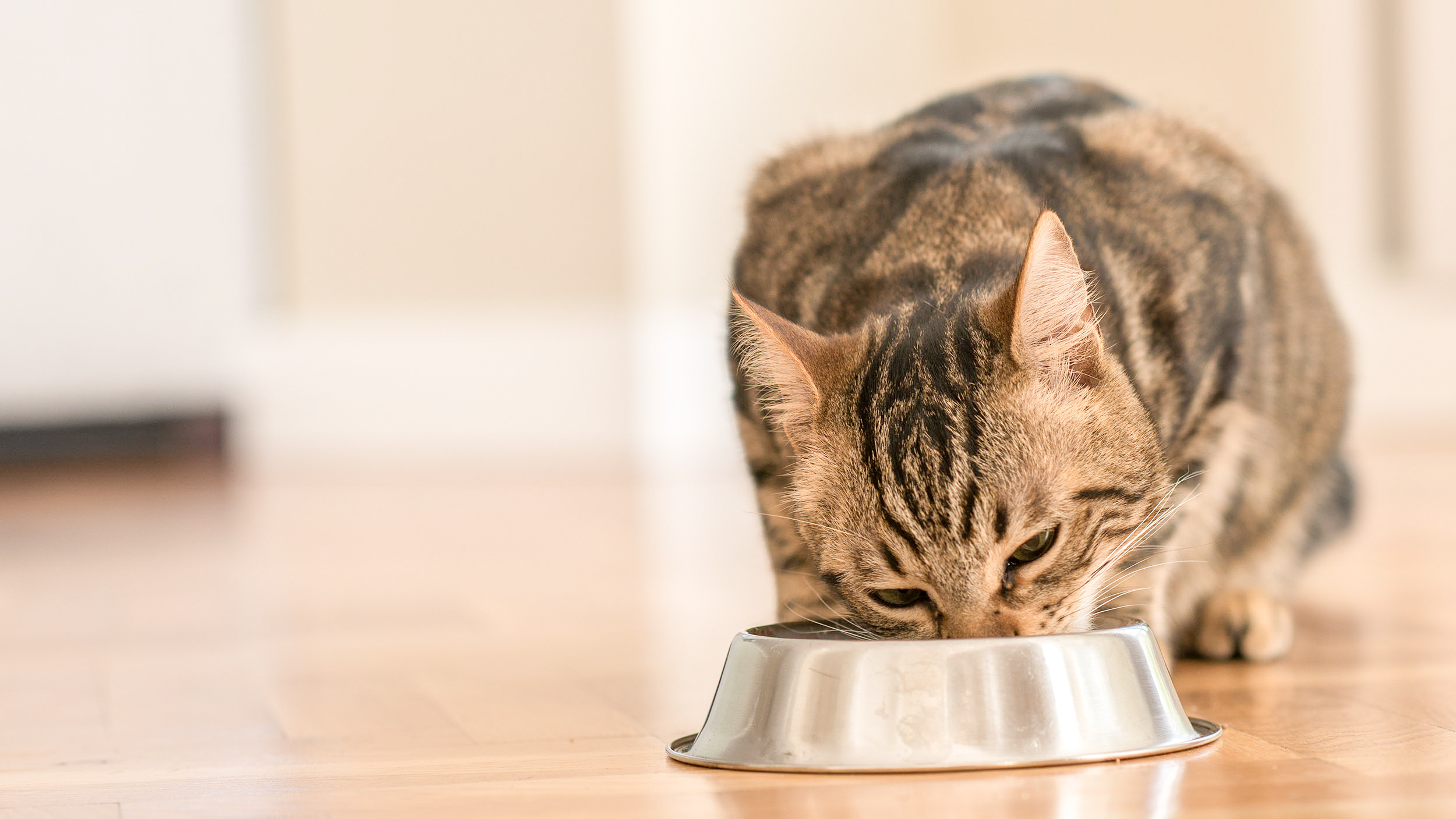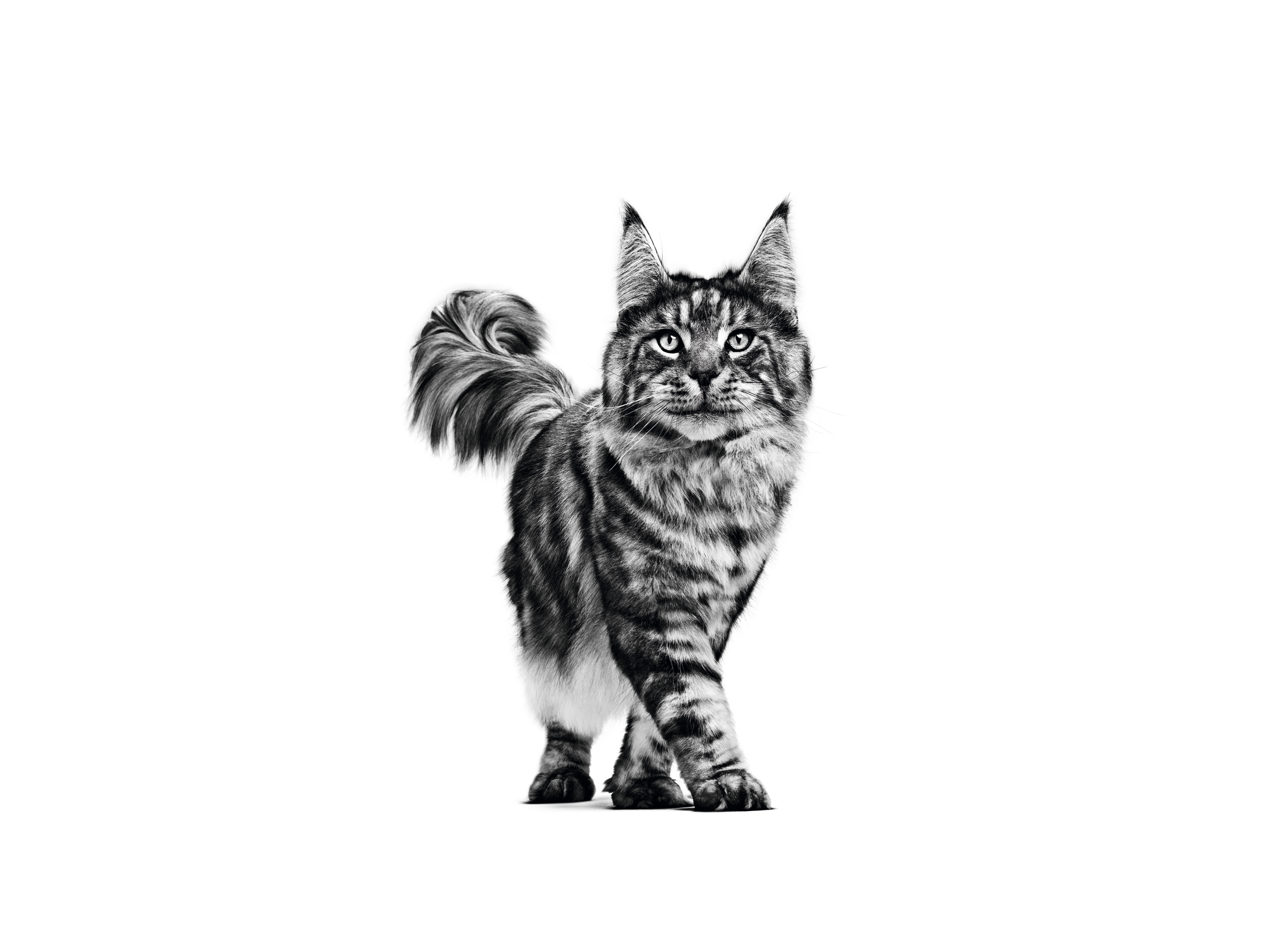Cat Calorie Calculator: Calculate Your Cat’s Daily Calorie Intake
Article

When your cat is a healthy weight, its quality of life is better – it can play and move more, it has improved physical and mental health, and its lifespan is extended. As its owner, it's important you know exactly how you can help your cat maintain a healthy weight and provide it with an excellent quality of life.
Helping your cat exercise
Making sure you have regular playtime with your cat, particularly if they live indoors, is essential to helping them maintain a healthy weight. Indoor cats need, on average, a third fewer calories than outdoor cats due to their lower energy expenditure, so playing with them is a good way to increase their movement and reduce the likelihood of gaining weight.
Two minutes of playtime twice a day, gradually increasing as they get more active, is an excellent start. Give them toys they can play with by themselves, or food toys which encourage them to play with an object to get a few kibbles as a reward.
Boredom is one of the principle reasons that cats eat when they’re not hungry, so by giving your pet things to play with you’re helping them focus on something healthier and more enjoyable in the longer-term.

Feeding your cat in the right way
Setting up good feeding behaviours will help your cat retain a healthy weight and avoid begging or mewling for extra food.
Make sure to give your cat the recommended portion of food by measuring it using kitchen scales. Even if you feel it seems too little , manufactured foods are complete and balanced, and the ration is carefully calculated to give your cat everything they need. Your cat needs plenty of access to fresh water, too, to help with digestion and prevent urinary problems such as ‘stones’ developing.
Put a limit on the number of treats you give your cat, as these can significantly increase their daily calorie input – if you do give them, make sure to factor them into their overall allowance.
The right food for the right time
Cats of different ages and lifestyles need different nutritional support to maintain a healthy weight, which means keeping an eye on their growth and adjusting their diet to suit their needs.
Kittens, from four weeks to four months, need plenty of energy to facilitate their rapid growth – but as their digestive systems are weaker, it needs to be energy-dense and highly-digestible so it doesn’t cause them discomfort. Regularly check their weight and adjust the portion to ensure they are consistently gaining weight in line with your vet’s advice.
Neutering or spaying has a significant impact on your cat’s weight; their energy requirements drop by 30% but their appetite can increase by up to 26% in the days following the operation. Therefore, neutered and spayed cats are at a higher risk of putting on weight, particularly shortly after their operation. Dedicated foods can help to prevent such instances, with a decreased level of energy, an altered amount of nutrients and an overall formula able to support their health.
During pregnancy, the energy needs of your female cat will increase dramatically – by the end of gestation, she’ll be consuming 70% more than normal! Food designed for pregnant or lactating cats is ideal, as it’s rich in fat and will support milk production for her kittens. To make sure your pregnant cat is given the right nutrients, it's best to consult a vet for recommendations on product and feeding schedules.
To make sure you’re giving your cat the full support it needs to maintain a healthy weight, speak to your vet who will be happy to advise you on the best actions you can take.
Related Articles

Find a vet
If you have any concerns about your cat’s health, consult a vet for professional advice.
Like & share this page